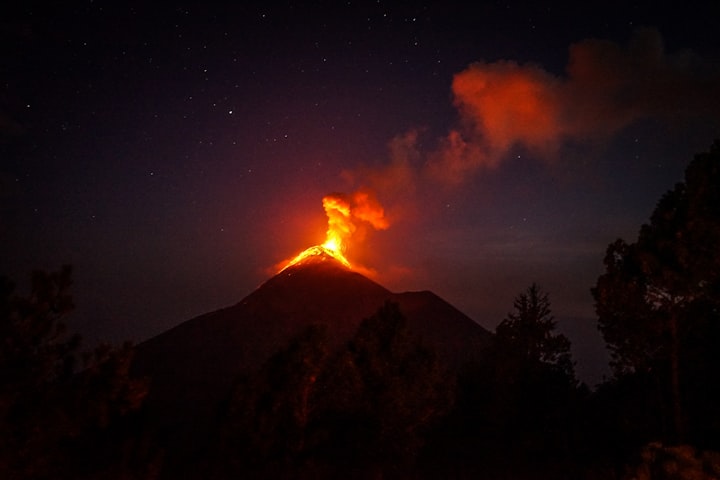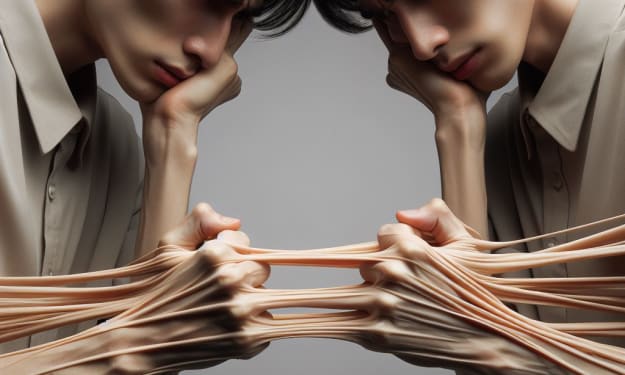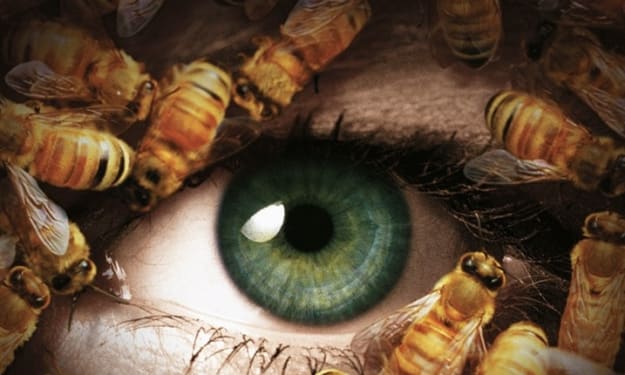After the Apocalypse (9) Finale
The Indonesian Archipelago: 1885

*** Graphic Descriptions of Real-world Events***
The tiny boy remembered nothing. He didn’t know where he was from. He didn’t know who his people were or even his own name. He spoke a fluent if childish Bahasa with a slight Javanese twang that suggested Anjer to Cahya. He did know that he’d lived in a bigger town, not a village, but that was all. He had awoken on the moving mattress of frail stone and was pitifully thirsty and hungry by the time he’d found Cahya on her floating oasis. Though he seemed frightened by it, he made a quick and respectful alliance with the tree rat and her miniscule family.
Though she called him ‘boy’ for the first few days, her affection for him and dependence on his company caused Cahya to eventually label the small creature ‘Gemi’, the androgynous name given to newborns of challenging birth which means ‘uncertainty’ or ‘towards an unknown future’. She’d always liked the sound and meaning of that gender-fluid name. For his part, and out of lack of alternative, Gemi accepted his name as an honorific even though he had a vague idea that ‘Gemi’ was a girl’s name. He knew that the name was an honor as the rat was still ‘rat’ in spite of all she had come through at Cahya’s side, and her hairless offspring had not graduated beyond being ‘the babies’.
Very little of note happened on the nameless days afloat amid the putrescence and decay of the old life. Once, a large shark split the surface and fed off of a dead mule floating nearby. It tugged at the rotting flesh almost laconically, apparently bored by the superabundance of food available in this new life under the ceiling of pumice. Then it practically wallowed away, if something as lithe as a shark could be said to wallow. Another time, a tern lighted not far off and began to peck at something which looked too much like human flesh. Cahya had to distract Gemi with the project of opening one of their last coconuts wide enough to get at the now precious white flesh within.
Edible, potable resources dwindled. Somehow the sun contrived to burn through the pall of high ejecta floating in the stratosphere and the air finally returned to being warmer than the sea around them. Cahya began to worry for their prospects and regretted the name she had given to Gemi. She need not have fretted.
After weeks without sight of another living soul, the curious and novel chug of a laboring steam engine came huffing over the mattress of pumice. Gradually a perahu hove into view from the direction of the setting sun. The astonished crew, traders from Aceh in the far north of Sumatra, pulled the emaciated living skeletons from their log perch among the endless discard of bleached skeletons sometimes fused with the eerie floating rock material. Their wonder that two small children could have survived amid such universal death left them shy and brittle with Cahya and Gemi. No one protested when Cahya returned to her log briefly to gather the mother tree rat and her brood, bringing them to join the unwelcoming company of the boat’s own resident harbor rats.
The traders’ first landfall was in Java, but they could find no suitable place to leave the children; none these fathers would have cared to inflict on their own children let alone these starvelings, so the children remained with the perahu for a while longer. Realizing the sea life wasn’t really calling to her tree rat, Cahya found the time to carry her old friend and her family into the woods beyond the harbor town and place them at the base of a hopeful looking ancient banyan. Her parting word to the tree rat was a simple “Thank you." The little rat was absorbed in carrying her young into a crack in a magnificent root of the great tree. After seeing the last baby safely away, Cahya didn’t look back while returning to Gemi and the trade-boat.
The town where they landed on Lombok was much the same, if not worse, than their Java stop, but the captain had high hopes for Flores and it was specifically the Crone with her trinket-trade which he had in mind as a safe new home for the children. He recognized the signs of silent trauma in them and felt that a quiet, sensible household might be on offer from the old lady, who he knew had suffered from too many traumas of her own. He also hoped her gentle sense of humor would act as a salve for their burnt spirits. That there was no point returning the children to the devastated shores of the Sunda Strait was a given for which no argument had been forwarded, even from the few government officials he’d been able to locate and corner on the subject.
The Crone had been hesitant at first. Looking at the ragamuffins, she’d felt that she lacked the resources and remaining energy to give them a good home. The way in which they silently watched her ponder them combined with a subscription donated by the kindly crew finally convinced her to try, provided the captain looked in on his return visit the next year. Though by the following year she’d long since settled on raising Cahya and Gemi herself, the captain and crew failed to return to Flores. It was not unusual and no great surprise as the perahu had been heading east into the dangerous world of Timor and the New Guinea coast. The Crone and the children couldn’t help being saddened over the crew's loss, however.
“You know everything else,” Cahya shrugged at Wein. “If you don’t believe that I found Gemi floating on rocks you’ll just have to not believe I saw these tiny grown-ups growing vanilla.” She raised both hands palm out toward Wein and lowered them to her knees in a gesture of defiance and certitude.
He’d sat watching her throughout her story, quietly encouraging her to continue with his nods and sympathetic facial expressions. Wein had already asked some of the coastal trade sailors he met in the town about these improbable floating rocks. Most had seen them with their own eyes, and a few could explain the unlikely mechanics with which they had been forged. Inclined to believe the very business-like, practical Cahya, he’d only waited for a suitable moment in which to press her for her story. He’d wished to hear the details of the Sumatran children’s harrowing experience first-hand, to eliminate the chaff of innuendo and lurid invention. He was satisfied.
In being satisfied with Cahya’s Krakatoa story he found he had to be satisfied with Cahya’s little people story as well, though the notion of fairies flitting about Floresian forests repelled his practical nature. Out of respect, he told her so. “I believe you saw these ‘little humans’ in the jungle, but I hope you don’t expect me to believe they’re magical or something. I love the Wayang, but only as a story, I can’t accept that Semar’s cousins are wandering around back there waiting for Arjuna’s return!”
Cahya chortled, “Oh, these weren’t heroes or gods, Wein; they were just small…, very small and strange looking human beings. They were people.”
“But why has no one else ever seen them? Are you cursed to keep having wild adventures all of your life, Light?”
Cahya blanched at this thought. “Praise be to Allah, I hope not!” She wasn’t a devout Muslim by any degree, so the force of the prayer hit Wein double-fold. “The little people only frightened me a bit, though I admit they gave me an eerie feeling when I was looking at them. It was almost like they knew they were out of place…, or maybe time… I don’t know. I should have called Gemi over to see them, but then, the two of us don’t carry much sympathy among the villagers. I hope you get to see the small women someday, Wein.”
He never did. In fact, it was only a fluke of timing which had allowed Cahya her brief glimpse and no one else among the villagers ever saw the Homo floresiensis people either. The protection left for the little people held strong.
Cahya lost the sense of eeriness they had given her but kept the wonder and hope which seeing the Floresiensis women had provided. For one hundred years she was, and would remain, the only modern human to know from personal experience that another human species still shared the world with Homo sapiens. Over her long and relatively peaceful life she never learned how the events of that precious day came about, just as she never learned the vital importance her original home island had played in the history of her species some seventy thousand years before her own brief existence.
Cahya would not learn that the Lake Toba of north Sumatra; a breath-takingly beautiful place she would never see, had once been the location of Mount Toba, a volcano which immolated itself in an explosion at least ten times greater than the apocalyptic Krakatoa destruction which Cahya had witnessed personally. She never learned about the impact of the vast environmental upheavals over the entire world and how those upheavals specifically affected the few remaining different species of humans sharing the planet.
In particular, she couldn’t know about the one-sided conflict created by the struggle for drastically depleted food resources the explosion of Mount Toba caused between her own species and the physically enormous yet gentle and dreamy Neanderthals of southern Europe. Lost in their own world of emotional artistry, valuing different things altogether from the slighter, more brutal Homo sapiens, the alien Neanderthals disappeared into pre-history. They left a mere remnant trace of their genetic signature in the DNA footprint of the emotionally and physically weaker other human species just learning to inhabit cooler climates. The smaller cousins had outbred the Neanderthals and finally consumed them into extinction. Cahya’s little, archaic Homo floresiensis people would eventually share the Neanderthals’ fate shortly after their own first encounter with Homo sapiens. Or so it seemed.
Yet, from the teeming hordes of the reigning champion species among all types of humans, Cahya alone would know and come to fully understand the ultimate truth that, in a vast and now utterly barren universe, Homo sapiens- the lonely ape- was truly not alone.
***********
I'd like to acknowledge the debt I owe Simon Winchester for his important work Krakatoa: The Day the World Exploded and its obvious source material and Chip Walter for his fascinating book Last Ape Standing: The Seven Million Year Story of How and Why We Survived for his many insights, and especially his thoughts on the Toba Population Bottleneck that very nearly ended Homo sapiens. All extrapolations beyond these works are fictious and of my own invention; these authors aren't responsible for the many 'fudged' parts!
This story is a small portion of a much larger complete novel which explains the otherwise jarring presence of the Floresian "hobbit" people in the modern world, and fits them into a narrative about the survival of the human race moving toward an ecologically balanced and hopeful future. Maybe someday I'll succeed in getting a publisher to give This Haunted Animal the time of day, or perhaps I'll just give up on the nepotic lot of them and self-publish it.
In any case, thanks for reading "After the Apocalypse" (looking at you DR!) and I very much hope you enjoyed it; I very much enjoyed writing it.
About the Creator
Roy Stevens
Just one bad apple can spoil a beautiful basket. The toxins seep throughout and...






Comments (1)
I really, really hope you can get this published, however you decide to do it! I wish I had some kind of actually helpful advice for you other than “do it!” 🤷🏼♀️😬 I’ll just say…this was absolutely riveting. I really loved the rat family and how that interaction built up the life amidst horrible destruction feeling. (I’m glad she found them a better place to call home too.) And yes. I very much did enjoy reading it 😁😁